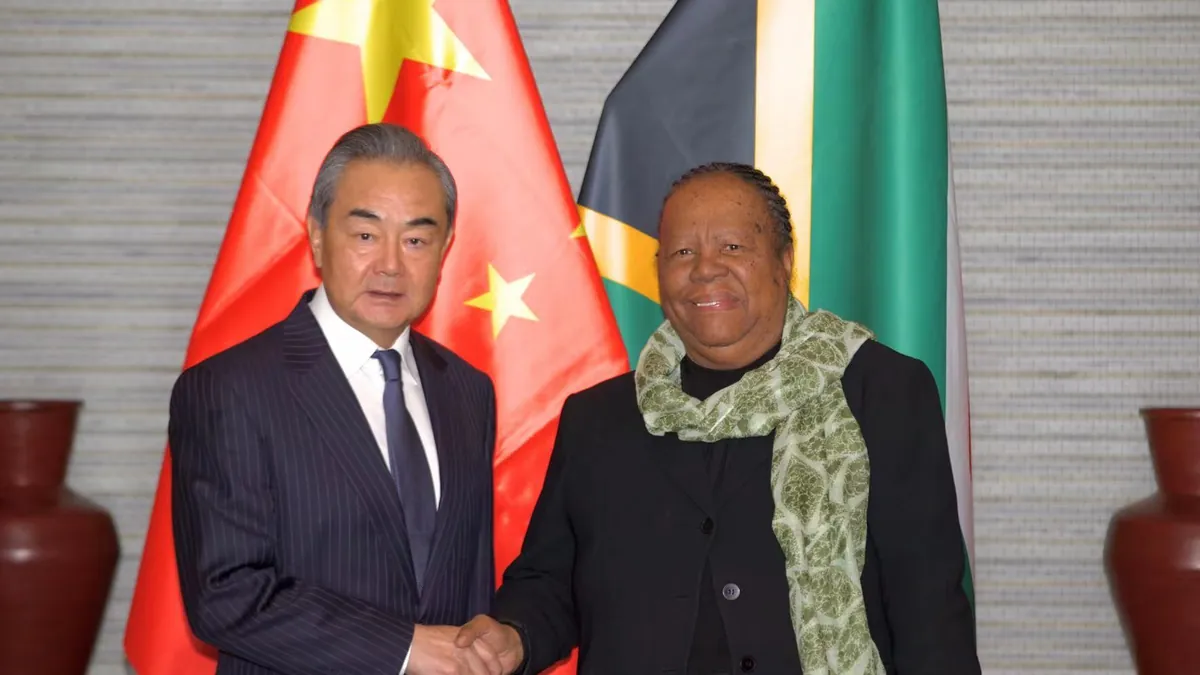China's Growing Influence in Global South Challenges Western Dominance
China's strategic engagement with developing nations is gaining traction, offering an alternative to Western influence. Beijing's efforts in security, diplomacy, and economic cooperation are reshaping global dynamics.

China's diplomatic efforts in the developing world, often referred to as the Global South, have been gaining significant momentum. This strategic engagement is challenging the traditional Western-dominated global order and reshaping international relations.
In a notable example of China's growing influence, Malaysia's Prime Minister Anwar Ibrahim recently described China as a "true friend" during Premier Li Qiang's visit in June 2023. This sentiment was followed by Malaysia's application to join the BRICS group in July 2023, signaling a shift in allegiances.
The BRICS alliance, originally formed in 2006 with Brazil, Russia, India, and China (South Africa joined in 2010), has been expanding its reach. In 2023, the group welcomed Egypt, Ethiopia, Iran, and the United Arab Emirates as new members, further solidifying its position as a counterweight to Western-led institutions.
China's approach to engaging with developing nations differs significantly from traditional Western methods. Tang Xiaoyang, chair of the international relations department at Tsinghua University, notes that China has been deliberate in calibrating its interactions with these countries, understanding the weaknesses in Western approaches.
"We will never take the trodden path of colonial plundering, or the wrong path of seeking hegemony when one becomes strong."
This rhetoric resonates with many developing nations that have historical grievances against Western colonial powers. China positions itself as a member of the developing world, emphasizing equality in its relationships despite its status as an upper-middle-income country with a GDP per capita of $12,614 in 2023.
China's engagement strategy extends beyond economic cooperation. The country has increased joint military exercises with smaller nations, such as the recent naval drills with Tanzania and Mozambique. It has also provided police training in countries like the Solomon Islands and Kiribati.

On the diplomatic front, China has been advocating for greater representation of developing nations in international forums. It supported the African Union's bid for G20 membership and has called for more developing countries to have seats on the UN Security Council.
However, China's approach is not without challenges. Joshua Eisenman, a professor at the University of Notre Dame, points out that China's relationships with Global South countries remain asymmetrical. Issues such as debt burdens from Belt and Road Initiative projects and environmental concerns in Chinese-led extractive industries have raised questions about the long-term benefits of these partnerships.
Despite these challenges, many developing nations see China as an alternative to Western influence. José Ramos-Horta, president of East Timor, one of the world's youngest countries, expressed openness to Chinese assistance in alleviating poverty and malnutrition.
As China continues to expand its influence, the global balance of power is shifting. Oriana Skylar Mastro of Stanford University notes that many world capitals are now prioritizing Beijing over Washington. This trend has prompted U.S. officials, like Deputy Secretary of State Kurt Campbell, to acknowledge the need for increased engagement with the Global South.
The evolving dynamics between China, the Global South, and Western powers will likely shape international relations for years to come, as the world moves towards a more multipolar order.


































